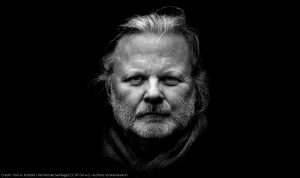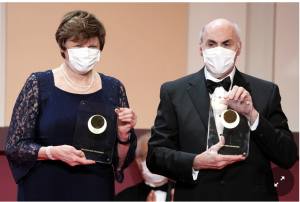Head of the Royal Swedish Academy of Sciences has said that it will not introduce gender quotas while awarding the Nobel Prizes. Goran Hansson expressed his desire for people to win “because they made the most important discovery… not because of gender or ethnicity”.
Interestingly, only 59 Nobel Prizes have been awarded to women since its inception in 1901. This year it was awarded to Maria Ressa, who shared the Nobel Peace Prize with fellow journalist Dmitry Muratov.
Also Read | Nobel Prize 2021: Full list of awardees this year
They were awarded for their “efforts to safeguard freedom of expression” in the Philippines and Russia respectively.
“It’s sad that there are so few women Nobel laureates and it reflects the unfair conditions in society, particularly in years past, but still existing. And there’s so much more to do,” Goran Hansson told the AFP news agency.
“We have decided we will not have quotas for gender or ethnicity,” he said and added that the decision was “in line with the spirit of Alfred Nobel’s last will”.
Also Read | Three US-based economists receive Nobel Memorial Prize in Economics
“In the end, we will give the prize to those who are found the most worthy, those who have made the most important contributions,” he said.
As a matter of fact, despite the increase in the number of women winning the awards, it should be noted that it has started growing “from a very low level”, he said. “Keep in mind that only about 10% of the professors in natural sciences in western Europe or North America are women, and even lower if you go to East Asia.”
Goran Hansson, however, said they would “make sure that we have an increasing portion of women scientists being invited to nominate, and we will continue to make sure we have women on our committees – but we need help, and society needs to help here”.
“We need different attitudes to women going into sciences… so that they get a chance to make these discoveries that are being awarded,” he added.
Scientists Emmanuelle Charpentier and Jennifer Doudna made history by becoming the first two women, without a male collaborator, to share the Nobel Prize in Chemistry last year.
Prof Charpentier said, “I wish that this will provide a positive message specifically for young girls who would like to follow the path of science… and to show them that women in science can also have an impact with the research they are performing.”
There was “a clear lack of interest in following a scientific path, which is very worrying”, she added.






